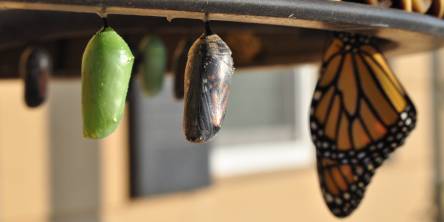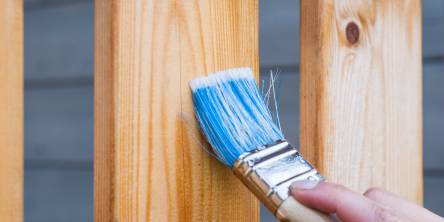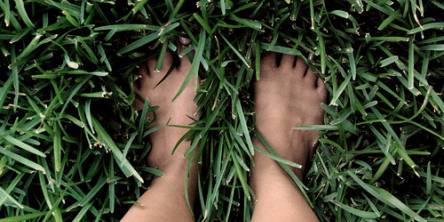Strain Relief
We all know that we live in a society filled with stress. We've heard about it from many, many sources, over the course of many, many years. It's hard to pick up a magazine without seeing an article or two about "Hot Tips" for relieving stress or "balancing" our lives.
It's true, we do live in a stressful society, and a culture of seemingly constant admonitions to "try harder," "never quit," "become more efficient," "do more with less," and "good is no longer good enough." Not only are we busier than we've ever been, with endless details demanding attention, but these days simply doing what you're supposed to do isn't enough. To be really on top of things, we have to do many things all at once. We have to "multitask" (I personally believe that multitasking is simply doing many things poorly, but talking yourself into feeling good about it anyway).
The answer, as you might expect (and as you've probably heard over and over again), is RELAXATION. We seem to know it, but do we really do it? Do we really put it into practice in a deep and meaningful way? For most of us the answer is "no."
I think part of the problem is a misunderstanding of the true concept of relaxation. Deep relaxation in a therapeutic sense is not merely the absence of doing other stuff. It is not simply how you feel when there is no immediate or pressing problem. It is not watching TV with a cold beer (though it is not necessarily a bad thing, and also has its place).
True therapeutic relaxation is the process by which we allow our bodies to reset themselves to a therapeutic, healthy baseline, and experience a deep and pervasive sense of peace. It is a process that is intentional and focused. For most of us, that just doesn't happen when we kick off our shoes and watch the game, or "decompress" from the workday. Even though it's fun and we might feel a little better, we may still have a "stress orientation," that is, we still worry, we continue to have things on our mind, we continue to be hyper vigilant and our nervous systems are still in some state of activation.
Further, the problem with stress a orientation is that, as with any other facet of our lives, behaviors that we engage in over and over again become ingrained habits. They become our baseline. When stress orientation becomes our baseline, we experience strain in response. In mechanical terms, stress is the amount of external force applied to a material or object. Strain is the measure of the effect that stress has upon that material or object. For us, strain is not simply something that just keeps us from feeling as good as we could. It is physically damaging, and potentially downright dangerous.
The physiologic effects of strain include heart disease, diabetes, asthma, obesity, depression, anxiety, gastrointestinal problems, Alzheimer's disease, chronic inflammation, premature aging and even premature death. Scary, huh?
Clearly, even though we have probably been desensitized to these topics through almost constant exposure, stress and strain are not things to be taken lightly, or ignored. Our health and longevity depend on it.
While it is not difficult, ameliorating strain and countering the effects of stress do require intention. It is not simply a matter of "chilling out." It is a matter of purposely allowing ourselves to let go and reintroducing ourselves to peaceful existence.
There are many online sources for meditation and eliciting our bodies' natural relaxation response which may be helpful in this. A simple online search will likely yield all that you will need. You may also find some therapeutic value in the concept of a Vacation of the Mind. While we may not always be able to change our circumstances, we always have the power to control how we respond. That is the beauty of a Vacation of the Mind. If you have an appreciation for the tropical, you may also enjoy Tiki Tranquility.
Similar Articles
74% of UK adults have admitted to feeling overwhelmed due to stress. That’s three-quarters of the UK population. Managing work commitments, school deadlines, and home duties can become hectic. Attempting to juggle these responsibilities can easily cause stress.
Developing a Gratitude practice can unlock doors to dealing with stress and anxiety. Simply stated, Gratitude helps you rewire your brain to see the good in the world. If done daily and at the start of the day, focusing on Gratitude will help ease your anxiety
In recent weeks the UK has been slowly beginning to remove or relax some of its lockdown restrictions. That being said. However, there is a large portion of people who will still be remaining at home for the most part, whether that’s for health reasons or simply because it feels safer. So, here are some simple ways to spend your time at home productively.
Our life is full of good and bad experiences. Whereas good moments give us positivity and zeal to live, bad moments can be accompanied by numerous consequences resulting in PTSD, anxiety attacks, depression, and numerous other mental health disorders.
Have you ever measured the huge power thoughts have on your life? Why do we so frequently forget that making a healthy mindset is stronger than any other trait of human power? Our mind doesn’t know limits if we don’t create them, and you know what the best part is? We can think the way we choose to.
Grounding is essential to the flow of energy, no matter where it’s being directed, or where it’s coming from. Anyone who desires to facilitate healing must learn about grounding, or it’s not going to happen.
Our brains crave novelty. Repetition deadens our response to activities, even those that bring us pleasure. Changing your environment can be the cure for this.







